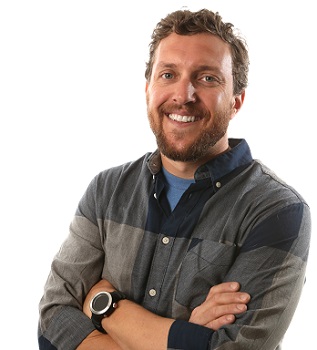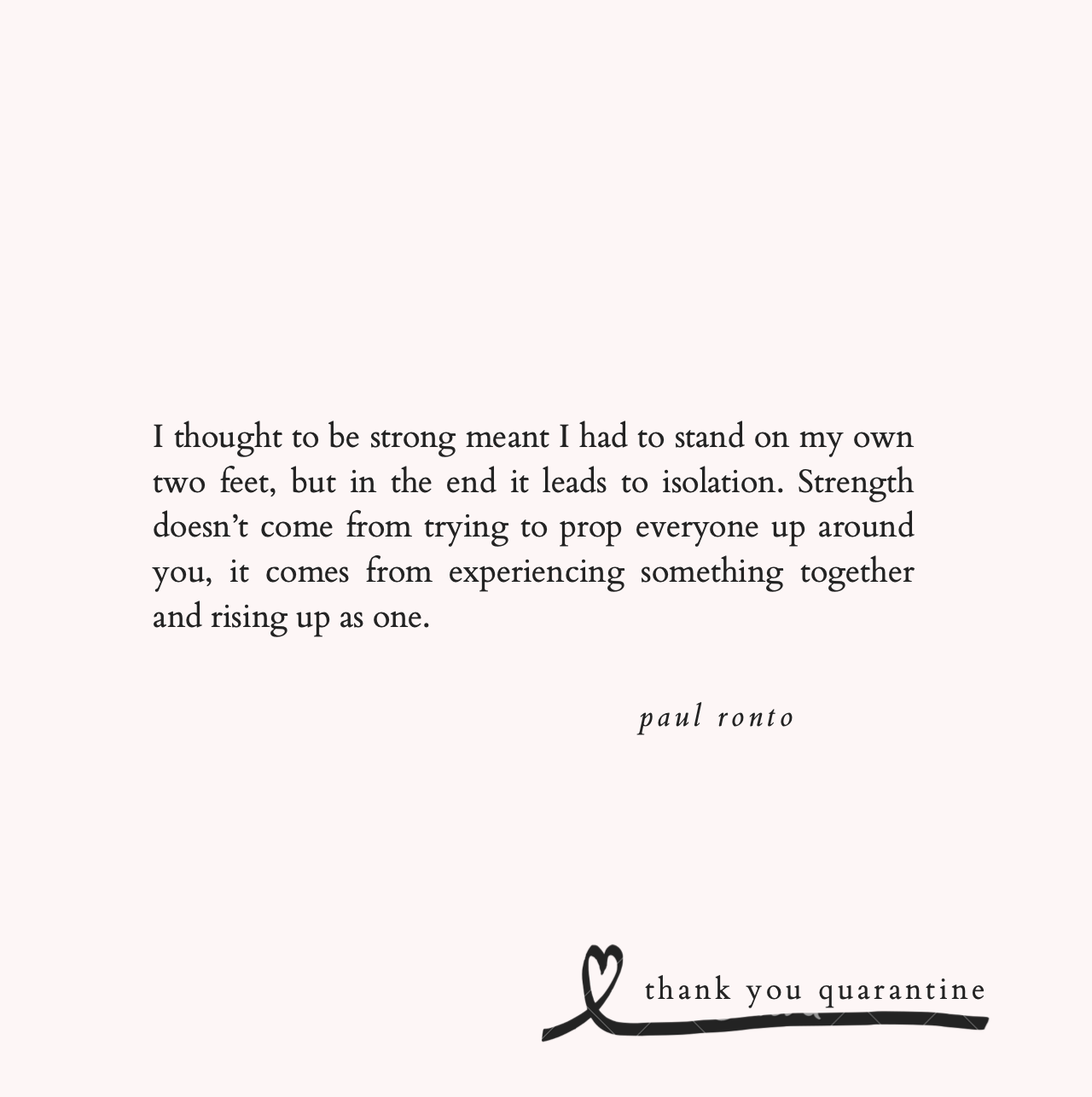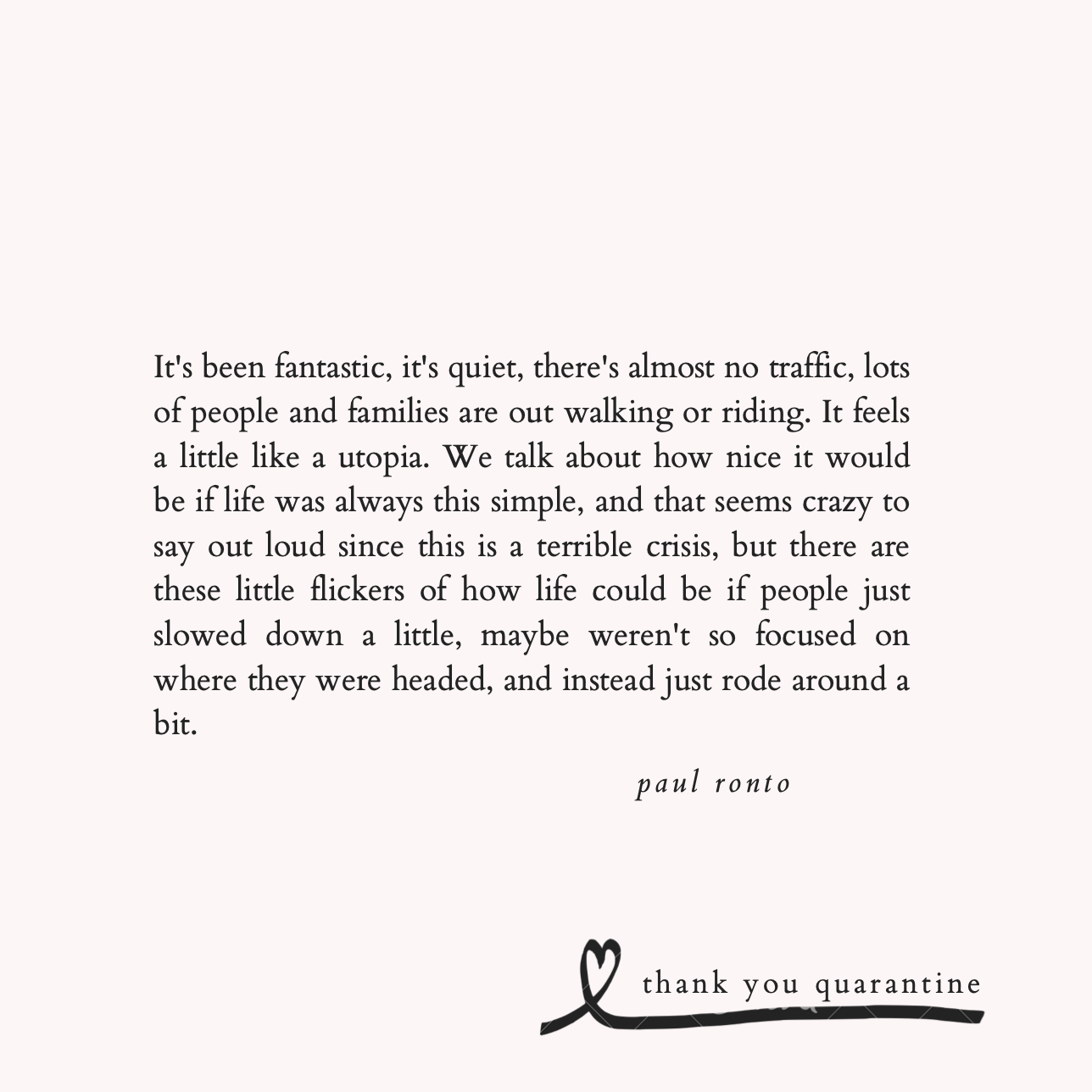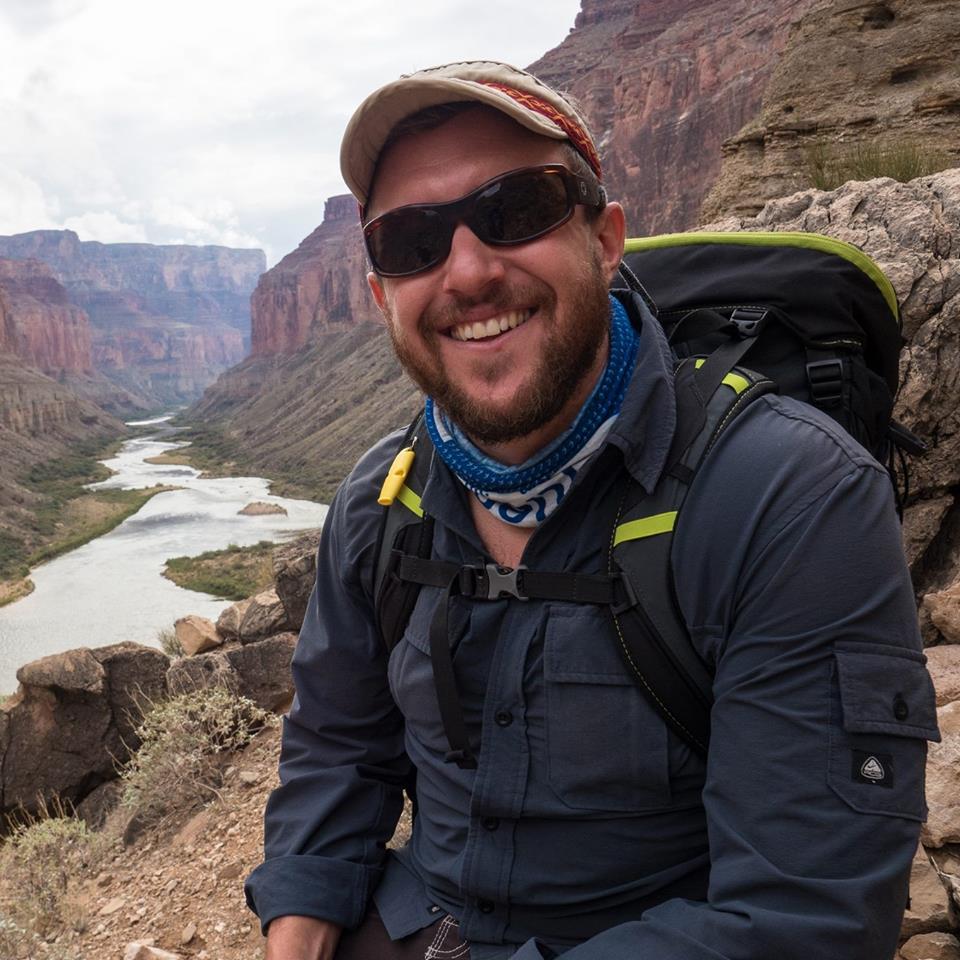
CMO and Content Director of RunRepeat, PAUL RONTO Spotlight
1. Weeks into quarantining, with more silence and less distractions, is there something that you feel like you are being called to face? Maybe a feeling about yourself that you can no longer outrun, a fear that has been exacerbated, a dependency that’s been crippling you, a relationship that you realize you’ve been neglecting?
It’s been 2 years since I left the office world for a remote position to work at home. It was an exciting transition. No more commute, my coworkers are all four-legged, and I was in charge of my motivation and work schedule. To be honest, I thought I had hit the jackpot. I was able to gain flexibility in my daily life while still striving to get to the top of my field. The funny thing about this quarantine is that now I actually have a human co-worker, my wife is working from home obviously, and that’s changed the dynamic of my work situation greatly.
Currently, there’s less silence and more distractions than I’ve had for the past two years, and it’s really made me realize how much I missed working with people face-to-face. It’s brought to light feelings that I was ignoring, that working remotely can be extremely isolating and lonely. It’s also brought up feelings of how I don’t want her to have to go back to the office when this is all over. I love having this interaction with another person, even though it’s a family member I know so well. I feel energized to walk down the hall and “go to” work in the mornings.
I’ve struggled with depression over the past few years, my father died when I was just a teenager, and growing into my mid-30s has been a struggle. The pressures of success, money, career, goals, family, and so on have weighed pretty heavily and these past few weeks have really made me realize that I’ve neglected relationships in pursuit of those goals. I’m now realizing that as great as working from home can be, it’s cut me off further from the human interaction I am realizing I crave and need in this world.
2. If you turned this period of quarantining into one long personal development project, where would you most need to breakinward in order to look back and say, “That time benefited me and I emerged healed and stronger in thanks to the pandemic”?
I think the biggest thing I am working on is building back up the relationships that I’ve just let go over the years. It’s odd how a quarantine and a world-wide pandemic can bring people together, but since we’ve been sheltering at home, I’ve actually talked with family and friends on the phone and over video calls more than I ever have. I can count on one hand the number of times I’ve talked to friends or family on video calls in the past decade, and now it’s multiple calls a night with those I care about.
In a way, isolation has made me feel much more connected to people in my life, people in my neighborhood, and even strangers out walking around town, than ever before. I feel like this crisis is pushing people to look around and cherish the other humans around them. People seem more friendly as they walk the neighborhood. There are more waves and greetings, there are more conversations with neighbors we’ve never talked to in the past, and there’s more time to focus on the simple things.
It’s odd, but even with all the sickness and death around us, the financial crisis, and unemployment skyrocketing, I have this odd feeling that there’s a lot of positive coming from this situation. I don’t want to belittle all the hardships out there, but, somehow life is feeling less stressful today than it did a month ago. Like with the order to stay at home, the pressure to do this, or get that done, are somewhat gone. The social pressures we make up white lies to get out of are gone, the networking events canceled, errands are on hold, and that Amazon wishlist is deleted. Like, instead of spending money and running around town to fill our “free” time, we can actually just enjoy it instead, sitting on the front porch watching the sunset or walking the dogs endlessly around the block. I don’t feel that guilt to be going right now, and it’s refreshing.
3. What is the most poignant memory you have of feeling isolated in your life? How did you breakthrough that isolation and eventually reengage with the world?
My dad died when I was 18 from cancer, I was in college and 1000 miles from home. I felt like I had to step up and be strong through that, and because of that pressure I put on myself, I push a lot of helping hands away.
I thought to be strong meant I had to stand on my own two feet, but in the end it leads to isolation. Strength doesn’t come from trying to prop everyone up around you, it comes from experiencing something together and rising up as one.
It’s taken a long time to realize this. I’m not 100% there either. I am still working my way through these feelings, but it’s helped to clarify my role today, during this crisis, that my family doesn’t need me to be in charge. They need me to be empathetic, to understand their fears and stressors, and have my own that I’m willing to express. I think a lot of people respond to hardship in a similar way. They try to be strong, and present as having it all together, but in the end, this just leaves you alone, atop a mountain of grief. I’ve been alone in this struggle for a long time, and through this crisis, I’ve actually started to see the end of that. I’ve realized that compassion and the ability to be vulnerable are better signs of strength than pretending to have it all under control.

4. As you practice self-isolation and physical and social distancing, what and/or who are you missing most from your “old life?”
I miss our friend group dinners. We used to get together every month to have dinner together, usually at someone’s house. It was always pretty simple, not a big to-do, and I miss those evenings socializing with friends. We have tried to replace these with Zoom happy hours but it’s just not the same. You can’t really mingle. It’s very one-person-at-a-time on video calls. It’s not a bad substitute by any means but it’s not the same as getting together.
I really miss going to the gym too. I enjoy working out, but it was always a struggle to motivate myself to actually go, and now I am really craving that kind of workout, having a coach and peers pushing you, something harder and more motivating than just working out at home or going for a run. Even though I don’t socialize much at the gym, it always felt like a community and I miss that more than I thought I would.
5. In a perfect world, where life resumes to normal, what would the perfect day look like to you? Who would you see, what would you do, where would you go, how would you act? And would this look and feel any differently than days of the past?
This would look different. I think I’d value my time more and try to take advantage of doing more throughout my days. Not being able to do as I please or see who I please has made me realize how lucky we are to have the downtime we normally do.
I think my day would be to wake up early, 5 am, hit up an Orange Theory class, be home by 6:30, shower and to work by 7:30-8. Work till noon and then try to have lunch with a friend. This is something I never do. I usually just work through lunch, but I think moving forward I want to carve out time to spend with people I care about. Work a few more hours and at 4-5 take off and do something outside for fun with my wife or friends. Mountain biking, a long walk, volleyball. Something to destress from work. In the evenings I want to read and talk with my wife, no more TV. We’ve wasted so much time on TV lately and it’s made me realize there are so many other things we could be doing instead. Ultimately, I want to stress less. I want to find a way to be a little more mellow/zen.
Before this crisis, I spent a lot of energy worrying about the future, and the pandemic has shown me that plans change regardless of how hard you work or plan. It would be great to keep that takeaway, that we all need to calm down a little and be more present than solely future-focused.
6. What is the upside of solitude and why do we work so hard to avoid it? What question do you have about your life that bubbles to the surface when you’re in solitude? Is there a question you feel like others keep busy in order to avoid having to ask themselves?
There’s a lot of good that can come from solitude really, reflecting on things, considering your future, and having some quiet in your head where you can just be present. However, these are really hard things to get out of solitude, and most people hate solitude because many of the thoughts are negative.
I think when you’re alone it’s easy to ask yourself if you are happy, or if you are reaching your goals, and a lot of focus is spent on the negative, on what needs to get done, what you did wrong, how you are not doing enough. We’re a very competitive culture and it’s unnatural to reflect on a job well done. If we do a good job, we just focus on what’s next. Because of this, solitude can be depressing for a lot of people. I think we tend to surround ourselves with others so we don’t have to think about how we didn’t do enough. Socializing is a great distraction from that.
I think the one answer I am always searching for when I am alone is, “where am I headed” and it’s an impossible one to answer. I have goals and aspirations, but you can never be sure of what’s next, or how you will react/pivot/change. I spend a lot of time and energy thinking about “what-ifs”, planning for things that may happen, rather than just being confident I will have the ability to react when something actually does happen, and it’s ultimately a giant waste of energy. It takes me out of the present and complicates my thought process.
7. How would you define freedom? When do you feel most free?
I view freedom as the ability to DO without the fear of remorse. To me freedom is not a lack of rules or physical boundaries, it’s more a state of mind.
I assume if I was ever behind bars I would feel differently but, even then, freedom is the ability to choose your path without the need to offer an explanation. It’s the mere ability to have an option, or an opinion, that you can then act on.
To me, I feel the freest when I am in nature, not just in the forest on a walk, but off the grid, exploring a new place, not knowing where the path may lead. I think for me to feel free I need challenge, too. Hardship and hurdles make me feel free because I get to choose how to overcome them. I feel free when I get to decide and when I don’t have to defend that decision. Simple decisions like what to cook for dinner, where to go for vacation, how to accomplish a goal at work, these are all small choices that lead to feeling free to me, but as I write this I realize that maybe freedom is bigger than just the ability to choose. Maybe during this crisis, I am feeling freer because I don’t have to plan for the future right now. It’s all up in the air, and instead of feeling the panic I did 3-4 weeks ago, I am settling into being ok with not knowing what’s next, and it feels like freedom from a world where I planned every minute of my life.
Maybe ultimately being present is freedom, being able to just focus on the here and now is what freedom is truly about. I think that’s why I like really challenging things. They force you to be present. You won’t successfully scale a 5.12 pitch, or kayak class V whitewater without being in the here and now, or without a lot of luck.
Maybe that’s why people meditate, and why monks seem so happy, they feel free when they are in the present without the worry of the past or the fear of the future.
8. What are you learning about the importance of self-reliance as well as physical touch?
I’ve always been hyper self-reliant. Since I was 18, when my dad passed away, I had to be in charge of my life, and it was a challenge I felt like I was easily built to overcome. But it’s honestly led to feeling isolated like I mentioned earlier, and through this crisis, I realize that I do get a lot from others and that it’s ok to need others in your life.
Even if you don’t need others to survive, I think there’s a difference between surviving and living. I just read The Dogs Stars this last weekend. It’s about a post-pandemic world but, in this story, 99% of people perished, and those left surviving are trying to figure out what life looks like 10 years after the event. The story alludes to the survivors being alive but not “living.” Life is over, those still alive are just waiting for the end, and I think the implication is that life alone is not actually living.
As for physical touch, I think it’s the same as surviving vs living. I think a lot of good comes with being physically close with someone. It’s a feeling of connection with another being, that you are not in this alone. I don’t think this has to be intimate touch but even shaking hands with someone, giving a high five, or getting a pat on the back all are non-verbal signals that you’re not alone, and I know I’ve felt a disconnect since this pandemic because of the absence of that with people I interact with.

9. What’s a moment that you’ve really enjoyed since quarantining?
Biking around town with no goal in mind. Since this started, my wife and I have been doing these evening bike rides with no real destination in mind. Riding bikes is nothing new to us, we live in a very bike-friendly town, but we are always going somewhere or have a destination in mind, or its for exercise, these are just for fun. Since the lockdown though we’ve found it to be a really fun release to just ride around town, exploring new areas. We really like to ride into new neighborhoods and see places we’ve never driven around. These excursions have been upwards of 2 hours just coasting around, checking out what’s different or new in town, where the fancy houses are being built, and exploring the river corridor.
It’s been fantastic, it’s quiet, there’s almost no traffic, lots of people and families are out walking or riding. It feels a little like a utopia. We talk about how nice it would be if life was always this simple, and that seems crazy to say out loud since this is a terrible crisis, but there are these little flickers of how life could be if people just slowed down a little, maybe weren’t so focused on where they were headed, and instead just rode around a bit.
It feels like it did when I was a kid, riding around my neighborhood with my sisters and parents, just something relaxing to do as a family after dinner. It’s brought back a bunch of really nice memories.
10. When the going gets tough, what’s one mantra you’d like to try and live by?
I try to live by this every day, “The way you do anything, is the way you do everything.” I am not really sure where I heard that or who said it, but it’s been with me for a few years now and I think about it daily when I want to slack at work, or not make the bed. I think it’s a good motivator for me because I believe that the tough things in life are the things that help us grow.
When things get tough I think you need to dig in, and work hard to overcome them, rather than run away from them. If you can see challenges as opportunities to get stronger, then every challenge becomes something that will make you better, not something that will stand in your way.
Take pride in accomplishing something hard, even if that’s just cooking dinner at home, or cleaning up after yourself, I think we all should hold ourselves up to a higher standard and be better, because the way we do anything is the way we’ll do everything else.
PAUL RONTO, Chief Marketing Officer & Director of Digital Content at RunRepeat, loves adventure. Over the past 20 years, he’s summited peaks throughout the Americas, trekked through Africa, and tested his endurance in 24-hour trail races. He has worked in the outdoor industry as a whitewater and hunting guide, gear tester, copywriter, and outfitting specialist at places like The National Outdoor Leadership School, No Barriers USA, and Sierra Trading Post. He has been quoted in NYMag, NBCNews, and Business Insider to name a few.


